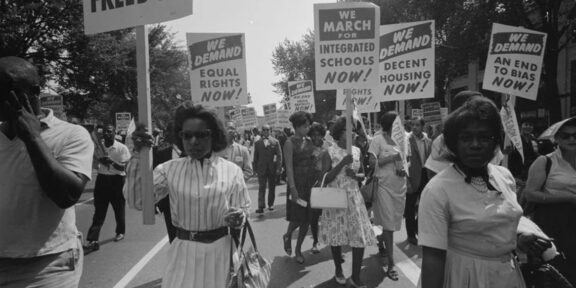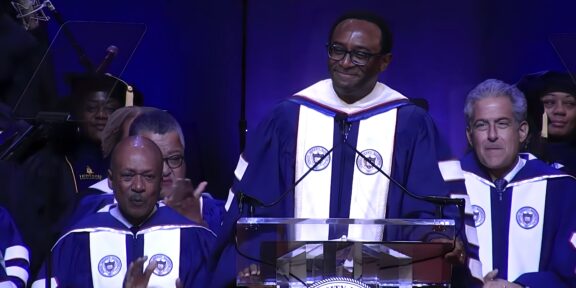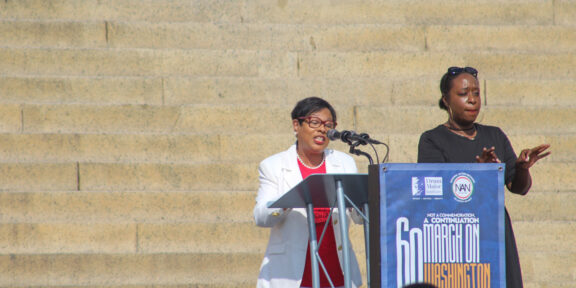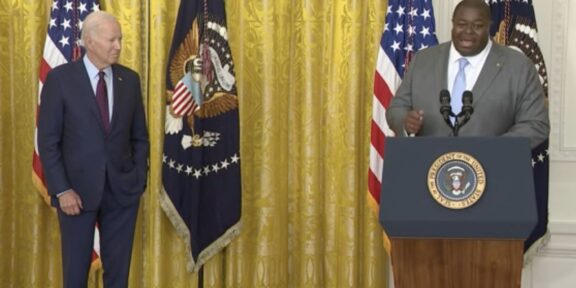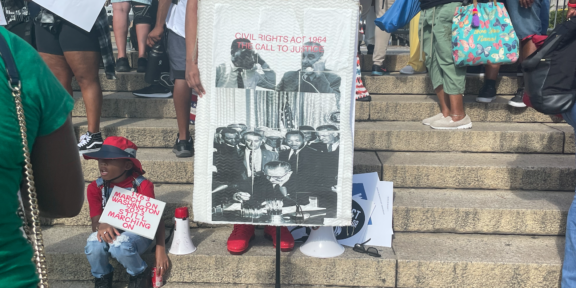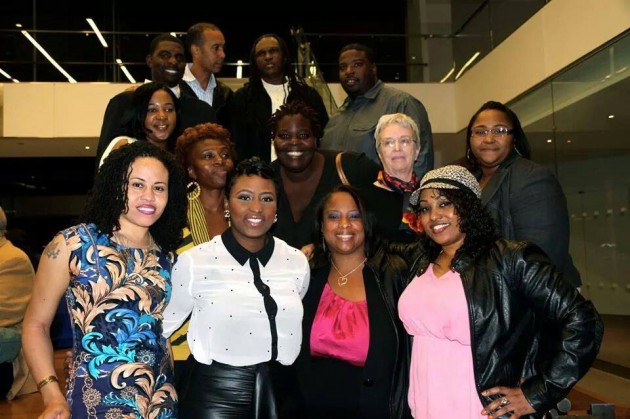By Kiara Patterson, NewsVision reporter
Six decades after the original March on Washington in 1963, community leaders and organizers of Saturday’s march met with President Biden and Vice President Harris to discuss what this 60th year in the fight for justice means. Though some call it a full-circle moment, many of the leaders say the past 60 years have shown how far America still has to go to realize “Dr. King’s “dream.” NewVision’s Kiara Patterson reports from the White House.
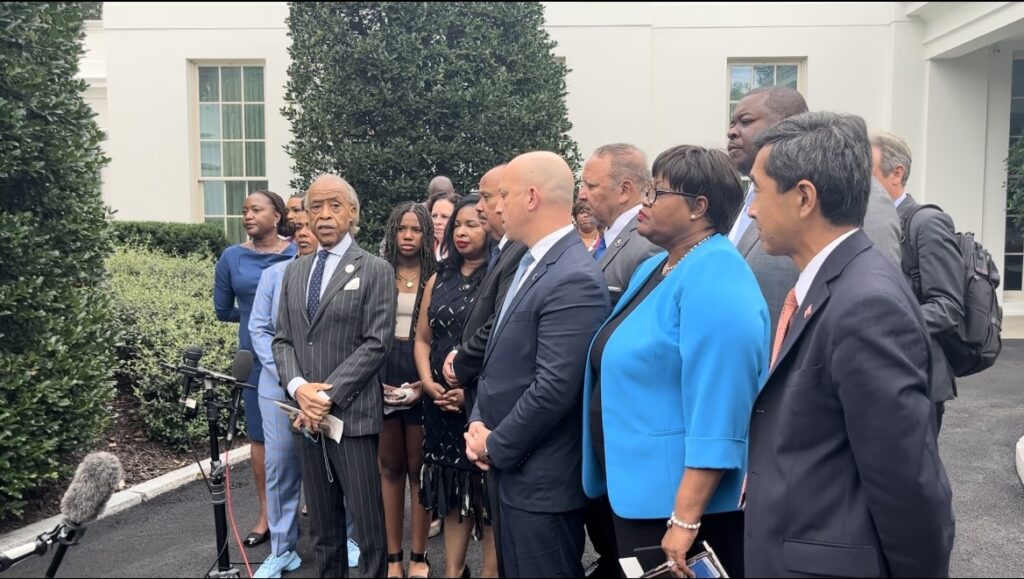
It’s Time to Be a Thermostat, Not a Thermometer, Civil Rights Leaders Urge at White House
By Madison Pina
Howard University News Service
Civil Rights leaders met privately with President Joe Biden and Vice President Kamala Harris on the 60th anniversary of the March on Washington and then gave remarks under a gloomy sky on the White House grounds. The weather matched their sentiments.
The Rev. Al Sharpton started by mentioning the shooting that occurred on Saturday in Jacksonville, Florida, while he and Martin Luther King III’s family led an anniversary march at the Lincoln Memorial.
“When we got to the end of the march and heard about it — that’s why we were marching,” Sharpton said. “Sixty years ago, two and a half weeks after that march, there was the bombing of the 16th Street Baptist Church. As much hope as we represent, there’s always gonna be those that will keep hate alive.”
Biden said in a statement on Sunday: “We must refuse to live in a country where Black families going to the store or Black students going to school live in fear of being gunned down because of the color of their skin. Hate must have no safe harbor. Silence is complicity, and we must not remain silent.”
The president echoed these thoughts Monday evening at a reception for the Lawyers Committee for Civil Rights Under Law, which was founded after a meeting with President John Kennedy in June 1963.
Two months later, on August 28, 1963, King and other leaders led the March on Washington for Jobs and Freedom, where King delivered his “I Have a Dream” speech, urging listeners for change.
While much change has occurred, much work still must be done to see his dream of freedom, justice and equality for all humankind.
“This is not a Black issue; this is an everyone issue,” said NAACP Legal Defense Fund President Janai Nelson.
“White nationalism is the greatest security threat to this country, and we are fortunate to have a president and vice president who recognize it as such,” Nelson said. “We have implored them to act as robustly as possible to continue their commitment to recognizing that we are all under siege. We are all diminished by white supremacists’ pain and violence.”
“This is a moment when we are at a crossroads and have an opportunity to move forward, to continue the progress, to invoke radical transformative change that is inclusive, that is based in equity and fairness and recognizes our diversity as a strength,” she explained, “or we can be pulled backward to a history where so many of us have fought to distance ourselves from.”
Many leaders shared their hope even in a time of uncertainty. It seems that history is repeating itself 60 years later, with some old and some new challenges.
“You would think that America would be much further than it is,” King III said. “What we know, though, is that Mom and Dad and others taught us that when people come together, change can occur, and we must change this trajectory.”
“In life, we must decide if we’re gonna be thermometers or thermostats,” he added. “All [a thermometer] does is record history. The thermostat regulates what happens in our lives. We must make a decision as to whether we’re gonna just record or help to regulate what happens in our nation, protecting and preserving democracy.”
Madison Pina is a reporter for HUNewsService.com

